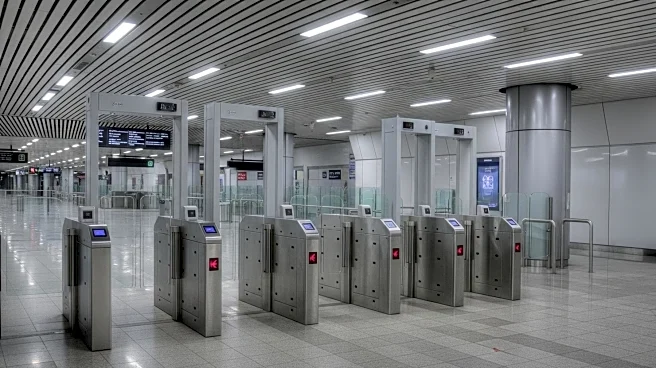What's Happening?
The Department of Transportation has announced plans to reclaim management over Washington's Union Station. This decision follows President Trump's increased deployment of troops in the nation's capital. The station, which has been under the control of the Union Station Redevelopment Corporation, is set to undergo a management shift back to the Department of Transportation. Secretary of Transportation Sean Duffy stated that the station has fallen into disrepair and emphasized the need for reinvestment to make the city safe and beautiful. The move is part of a broader effort by the Trump administration to exert more control over Washington, D.C., including a federal takeover of the city's police department and the deployment of the National Guard.
Why It's Important?
The reclamation of Union Station's management by the Department of Transportation is significant as it reflects the Trump administration's broader strategy to increase federal oversight in Washington, D.C. This move could impact local governance and the autonomy of city management. The initiative is also tied to a larger beautification plan for the capital, which includes a request for $2 billion from Congress. The decision could lead to increased federal investment in infrastructure, potentially benefiting the local economy and improving public transportation facilities. However, it also raises questions about federal versus local control and the implications for city governance.
What's Next?
The Department of Transportation is expected to finalize its renewed control over Union Station by September, following negotiations with the Union Station Redevelopment Corporation and Amtrak. The administration's plans for the station are likely to include infrastructure improvements and increased security measures. The broader implications of this move may prompt reactions from local government officials and civil society groups concerned about federal overreach. Additionally, the request for $2 billion to beautify Washington, D.C., will require congressional approval, which could lead to political debates and negotiations.









